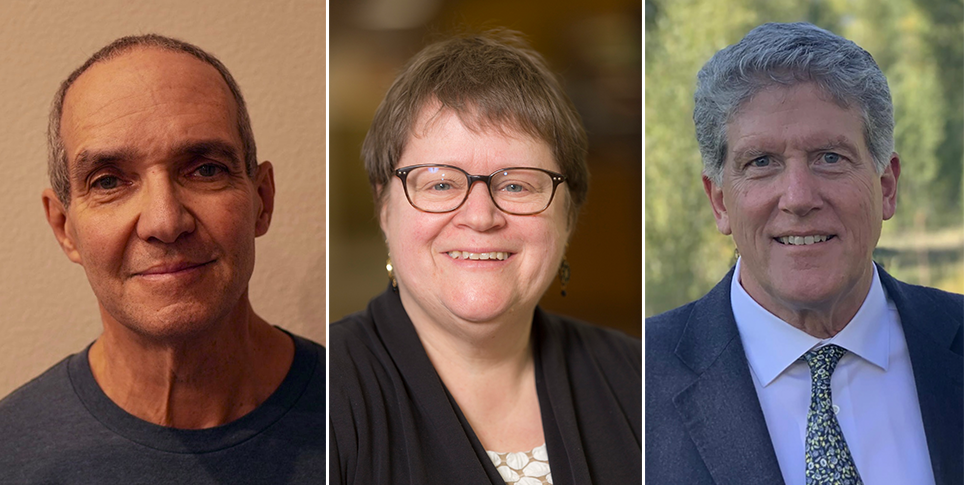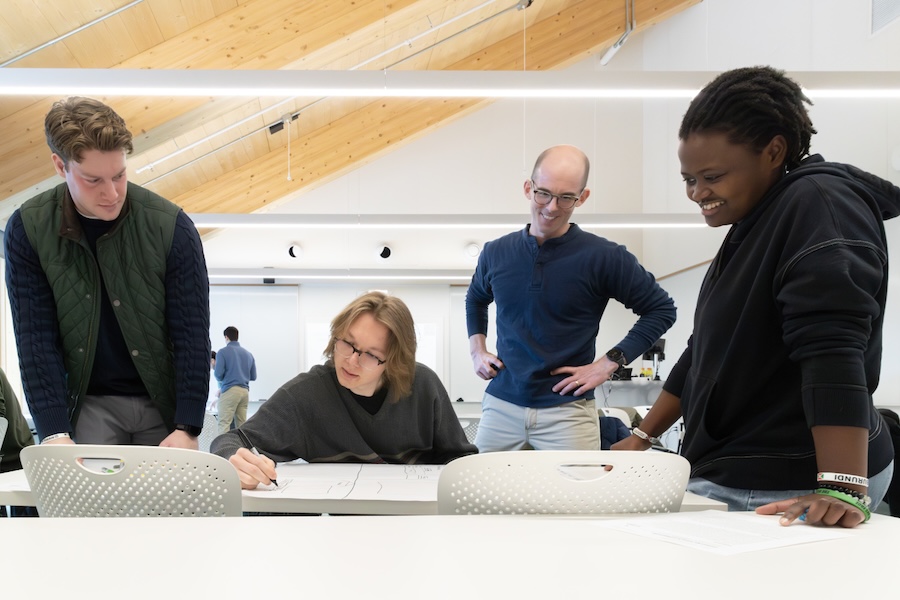A Family’s Guide to Career Exploration
By Bowdoin News
Bowdoin’s Office of Career Exploration and Development (CXD) supports students in myriad ways during their journey to that first work experience—and families are an important part of the support system too.
During Family Weekend, executive director Kristin Brennan offered what has become an annual event, the Family’s Guide to Career Development, where she was joined by four CXD peer advisors—juniors and seniors who have been trained to help students with résumés, job-searching, networking, and more. What follows are their responses to the most frequently asked questions.
Amid news of frozen federal grants and the impacts of AI, what is happening in the job market?
We spend a lot of time talking with employers and alumni to understand the ramifications and then quickly turn around to interpret the findings for students and colleagues. For instance, we are happy to report that both Fulbright and Americorps funding are back. As for AI and the process of applying for jobs, it was already fairly easy for candidates to apply for jobs with the click of a button, for instance, submitting a résumé via LinkedIn. Now, with AI involvement in the production of materials for many candidates and in the screening, both sides of the equation have become discouragingly impersonal. The best way around that is to make real connections with people. Fortunately, Bowdoin is well positioned for that with the employer relationships we have cultivated and our responsive and caring alumni body.
How does Career Exploration and Development support students?
We spend a lot of time guiding students one-on-one. Our team of advisors, from various sectors and industries, allows us to offer a lot of perspective. We also have a team devoted to employer engagement, cultivating relationships with alumni and employers to hire Bowdoin students. We offer a great deal of career education, whether that’s a panel exploring health careers or our largest-scale event, Sophomore Career Bootcamp, when every sophomore spends three days working on their story, their goals, and their résumés and cover letters, getting exposure to many career path ideas. On most weekdays during the semester, there is usually at least one employer on campus. We’re are also part of a larger system of support that includes faculty, staff, alumni, and even students’ peers, including the juniors and seniors who work as peer advisors every afternoon in our office.
How are Bowdoin students positioned to enter the workforce?
A liberal arts education is such a great foundation in interdisciplinary thinking and adaptability; that positions students well as jobs and careers shift. Their critical thinking skills will be even more important as AI becomes more prevalent in the landscape. The Hastings Initiative for AI and Humanity is such an opportunity for deep engagement and wrestling with the broader implications. The emotional intelligence you develop living in residence halls and resolving conflicts thoughtfully and leading student clubs and initiatives are experiences that are invaluable to employers. And an engaged alumni community is important when job searching has otherwise become impersonal.
What advice do peer advisors have for families?
Be your student’s support system. Their career pursuit may not be what you thought it would be, and you may not be familiar with the work they want to pursue, but you can show that you care and that you’re interested—like sharing an article in a field your student has shown interest in. Another suggestion is, instead of asking, “How’s the job search?” ask about something they can take action on, like “Did you see this event? You might like it—think about checking it out.”
What do career peer advisors say to encourage their classmates as they begin their job searches?
- Pursue the classes that interest you in addition to the ones you came in thinking you would like. One art history course changed my whole career plan.
- Start simple. It can seem overwhelming at times, but you can do a little at a time—writing a résumé today, learning how to job search tomorrow.
- If you’re nervous about networking, as many people are, don’t view it as transactional. It’s about cultivating relationships and learning. That’s much easier, and we can help you write an outreach email.
- Look for what piques your interest; what do you like to do? Start there.



